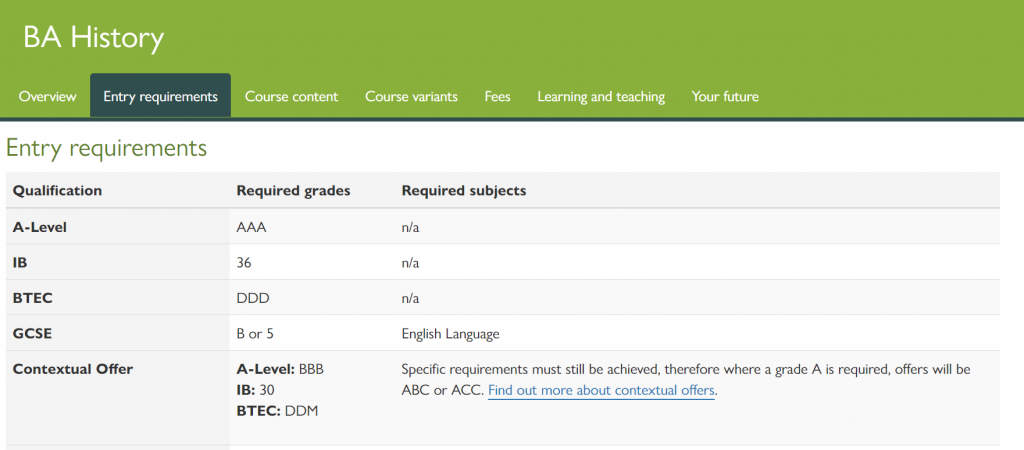Fair access to Higher Education is hugely important to us at the University of Exeter. We aim to make our application and recruitment processes as transparent as possible.
Part of this commitment, outlined in our Access and Participation plan, involves a contextual offer. On each of our course pages, you will see the contextual offer alongside the main entry requirements.
For example, our course page for History BA Streatham campus (2021 entry) outlines required grades, and then the contextual offer.

What are the grades for a contextual offer?
Our contextual offer is broken down into 3 categories:
- BMBS (Medicine): contextual offer would be
- A-Level: ABB
- IB: 32
- BTEC: DDM
- Grade range ABB or above: contextual offer would be
- A-Level: BBB
- IB: 30
- BTEC: DDM
- Grade range BBB: contextual offer would be
- A-Level: BBC
- IB: 28
- BTEC: DMM
Are my students eligible?
- All applicants from state schools who live in an area with low participation rates in higher education (POLAR 4 LPN Q1/2). Pupils can check eligibility using the postcode checker available on the Office for Students webpages
- All applicants from state schools with more than 60% or at least 450 pupils who live in areas of deprivation (IMD Q1/Q2). View a list of Eligible schools.
- Applicants we define as either a Care Leaver, a young person who has been looked after by the local authority for more than 13 weeks since they were 14, including some time at age 16 or 17, or Care Experienced any student who has been or is currently in care or from a looked after background at any stage of their life.
- Applicants engaged on specific progression programmes run or managed by the University of Exeter
- Applicants seeking asylum, have limited leave to remain, are under ‘humanitarian protection’ or have refugee status
Any questions?
You and your students are welcome to get in touch with the University of Exeter admissions team at ug-ad@exeter.ac.uk or via phone: 0300 555 60 60 (UK callers) +44 (0) 1392 723044 (EU/International callers)

